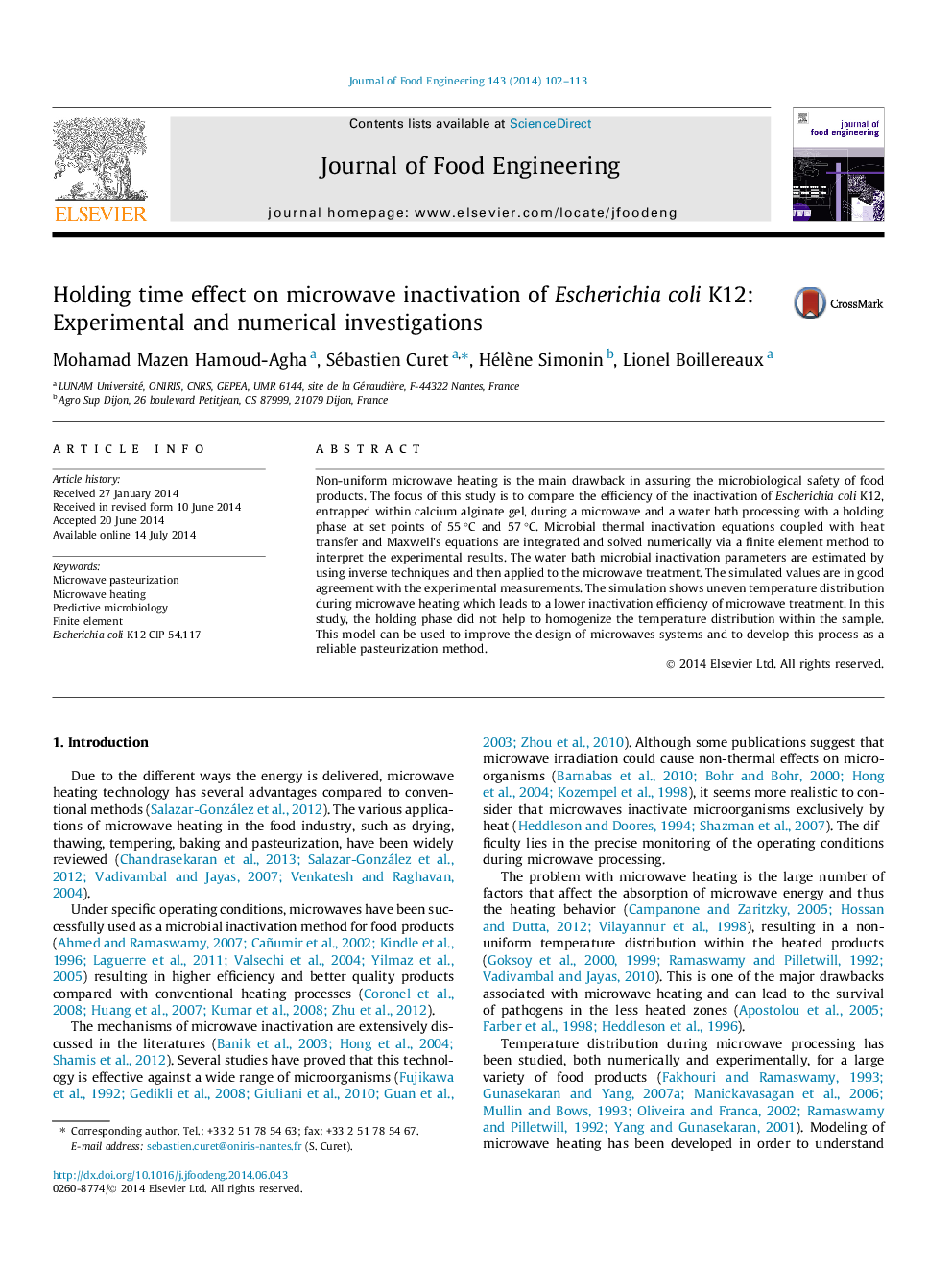| کد مقاله | کد نشریه | سال انتشار | مقاله انگلیسی | نسخه تمام متن |
|---|---|---|---|---|
| 223040 | 464328 | 2014 | 12 صفحه PDF | دانلود رایگان |

• We compare the microbial inactivation efficiency of microwave and water bath treatments.
• The holding phase effect on heating uniformity is investigated.
• A coupled model for the microwave inactivation process is validated experimentally.
• Lower microwave inactivation efficiency is due to thermal heterogeneity.
Non-uniform microwave heating is the main drawback in assuring the microbiological safety of food products. The focus of this study is to compare the efficiency of the inactivation of Escherichia coli K12, entrapped within calcium alginate gel, during a microwave and a water bath processing with a holding phase at set points of 55 °C and 57 °C. Microbial thermal inactivation equations coupled with heat transfer and Maxwell’s equations are integrated and solved numerically via a finite element method to interpret the experimental results. The water bath microbial inactivation parameters are estimated by using inverse techniques and then applied to the microwave treatment. The simulated values are in good agreement with the experimental measurements. The simulation shows uneven temperature distribution during microwave heating which leads to a lower inactivation efficiency of microwave treatment. In this study, the holding phase did not help to homogenize the temperature distribution within the sample. This model can be used to improve the design of microwaves systems and to develop this process as a reliable pasteurization method.
Journal: Journal of Food Engineering - Volume 143, December 2014, Pages 102–113